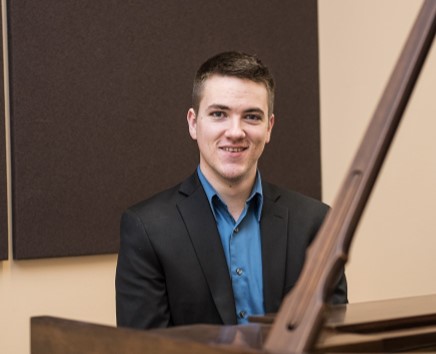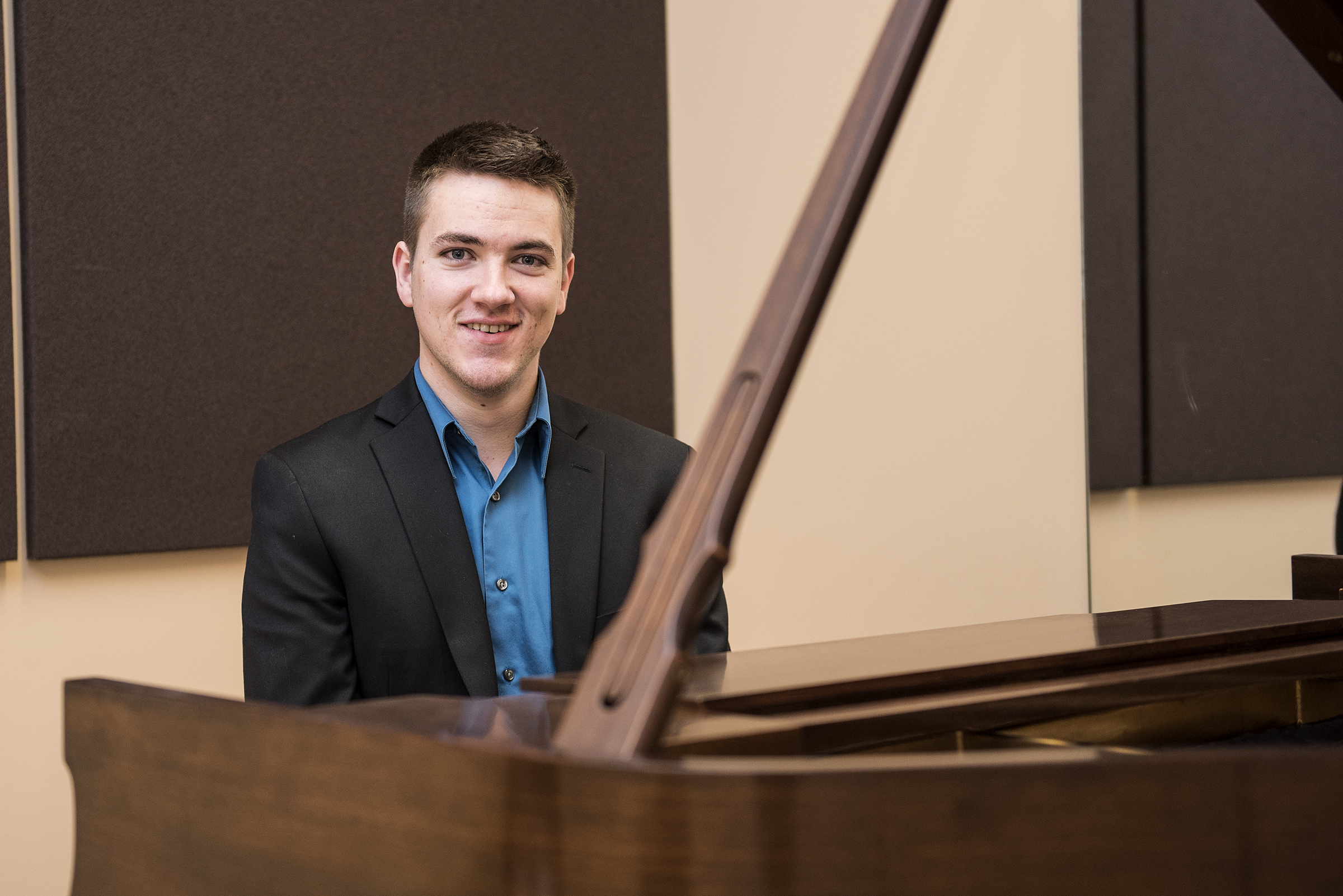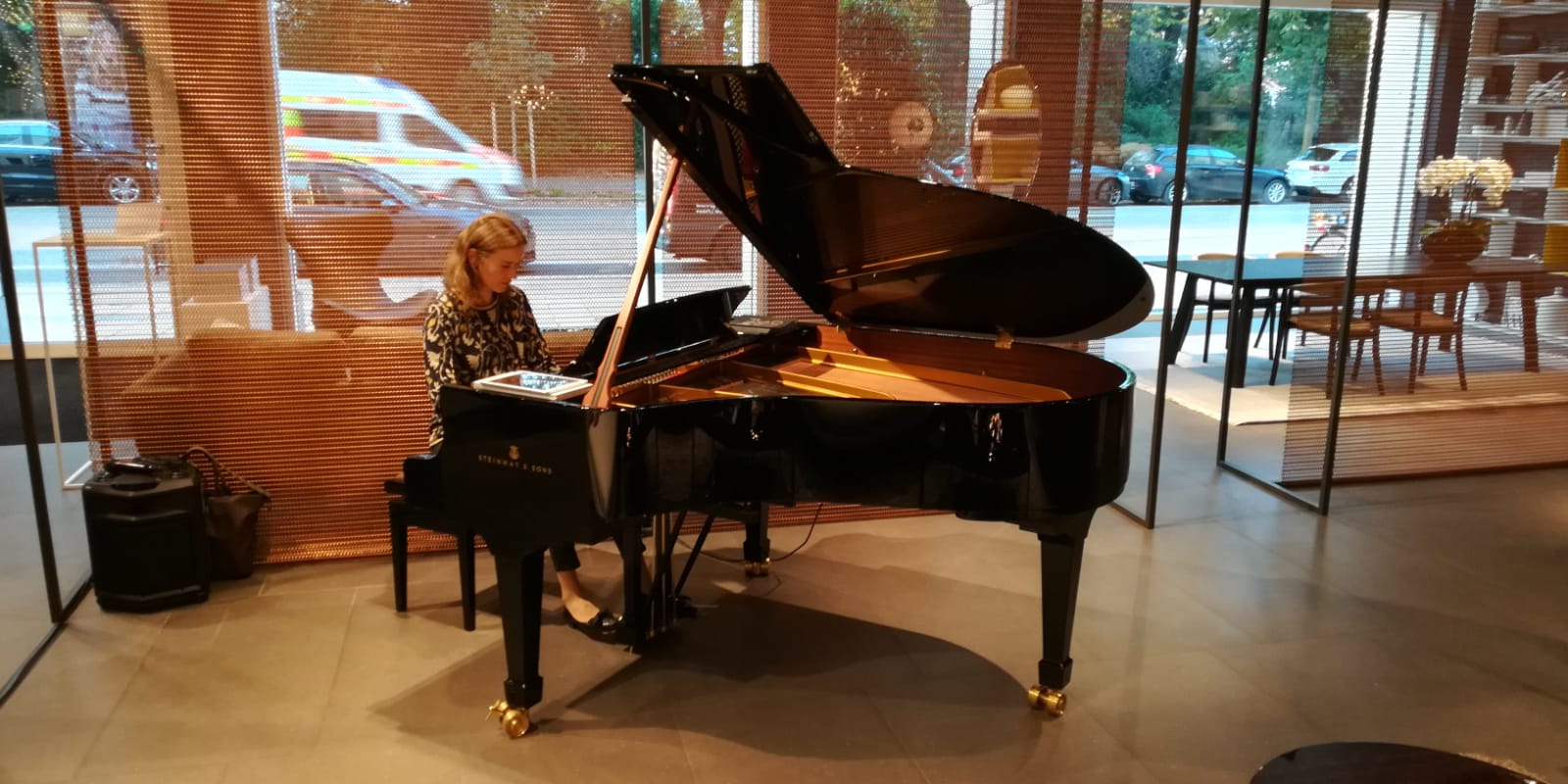About
Andrew Nesler is a young pianist, composer, and piano instructor from Fort Wayne, Indiana, U.S. His musical life began at the age of four, after hearing a recording of Vladimir Horowitz playing Tchaikovsky's first piano concerto. He remembers plucking out melodies of Bach on a small toy piano in his childhood home and begging his parents for piano lessons, which he finally began at the age of nine. He currently studies with Dr. Hamilton Tescarollo in Fort Wayne, and has participated in masterclasses with William Bolcom, Alessio Bax, Fabio Bidini, and Antonio Pompa-Baldi, among others. Nesler's interest in composition began at a very young age. He has been improvising at the piano for as long as he can remember, and still has in his possession manuscripts of short pieces that he wrote when he began taking music lessons. His biggest musical influences have included Schoenberg, Cowell, and Ustvolskaya, and he has a special interest in world folk music traditions. His goal as a composer is to express those things that are most human, and this is generally achieved with an intimate understanding of tonal systems and how they interlap. His music often includes complex polyrhythms and polytonality, and is typically scored for soloist or chamber ensemble. Recently, he has enjoyed scoring for silent film with the Hope Arthur Orchestra and performing at the IPFW Gene Marcus Piano Camp and Festival


